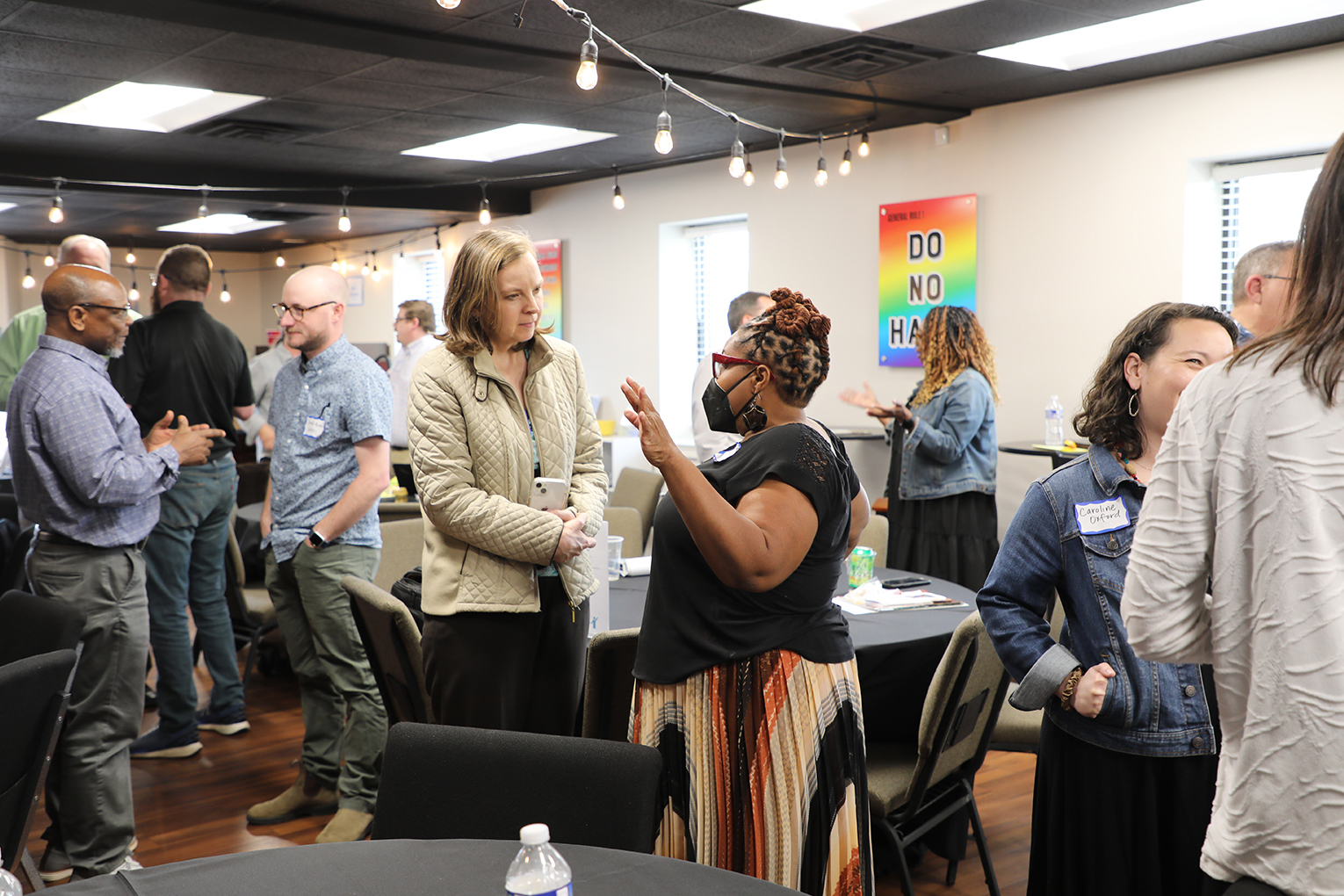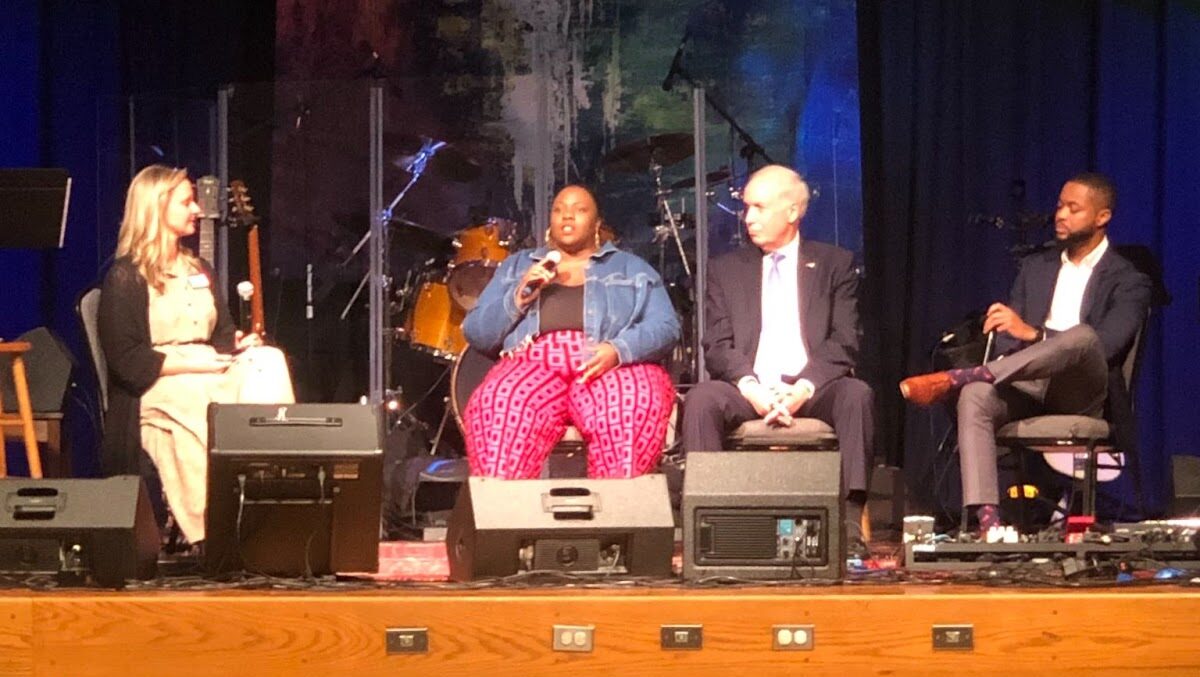5 Questions to Ask About Your Community
Whether your faith community has a storied tradition in community engagement or is just getting started, these helpful tips help frame your current and future vision for civic partnership.
Created by NC State University’s Institute for Emerging Issues and Thriving Rural Communities.
Faith communities hold a historic and important role in North Carolina. Many have existing relationships with the community around them – through missions, resource sharing and advocacy. These questions can help guide your next steps in creating a sustainable community relationship.
How do you and your faith community define “community”?
The word “community” is used to describe a population usually outside a congregation’s walls. But the members of a faith community are part of a community. When your congregation wants to “reach the community” – the first thing that needs to be discussed is what that means.
- Immediate neighbors (people that live in a radius of the congregation)
- Members of a certain demographic (elderly, young families, Hispanics, etc.)
- Under-resourced populations (often low-income, often minorities)
- Local institutions (schools, parks, medical clinics, non-profits, etc.)
- Members of the congregation and their social networks
Have you evaluated your current efforts to address needs and opportunities?
List out every ministry (small or large, official or occasional) that engages partners or people outside the church.
- Who exactly runs the program and who does it benefit?
- What are the relational aspects of each ministry? Are relationships formed or are services transactional?
- What resources does each ministry require from the church (financial, volunteers, time, space, etc.)?
What is the narrative of your faith community? Of the community?
Everyone has a story about the spaces they inhabit. “The community used to be thriving but the jobs and young people have left” or “The church really values children”, etc.
- What do people say about your faith community?
- What do people say about your community (immediate area, town, or county?)
- Does data support the narrative of your community or is it an incomplete story? (Use the tools under “Get to Know Your Community” to research your area)
- Is the narrative of your faith community accurate or reflect a dated or incomplete narrative?
Who can you work with?
Partnering with other faith communities, businesses, non-profit, and government groups can make ministries more focused, effective, and less time-consuming.
- Look up “non-profits + county name”. Many databases will list the websites of groups in your area working on specific issues that you might not be aware of (ex: https://www.sosnc.gov/home/four_o_Four?aspxerrorpath=/corporations/nonprofitcounty.aspx)
- Ask community leaders about informal networks (ministerial alliances, brainstorm meetings, monthly lunches)
Do you have a culture of humility?
As you seek to create or deepen relationships with those in your community it’s important to know there will be barriers. Your faith community might not be ready to engage with people different than themselves. There might not be financial resources to start a new partnership. There might not be any partners to work with.
- Examine the conscious or subconscious biases that could exist about the people we want to help (race, class, education level, personal values, parenting style, work ability, language, religion, politeness)
- Always consult the experts. Look towards data, research, neighbors, or similar ministries to decide how to run your partnership
- Hold nothing sacred but the mission. If your goal is to end hunger, be willing to change your methods based off resources, passions, volunteers available and what people are saying
- Check out the “Asset-Based Community Development” section of the website for practical ways to address barriers and opportunities within your congregation and community
- Categories:


